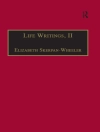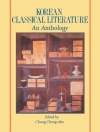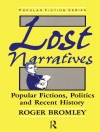Shakespeare’s history plays have always been pivotal to our understanding of his works. This collection renews attention to these crucial plays by exploring official and unofficial versions of the past, histories and counter-histories in the plays of Shakespeare and his contemporaries. By exploring the diversity of Shakespeare’s engagement with history in all its forms, these contributors open up a range of new interpretive possibilities for understanding the way history ‘plays’ with the past.
The book is divided into three sections: Memory and mourning, Counter-histories, Identity and performance. In each section, leading theorists, historicists and performance critics offer fresh perspectives on the key issues that are transforming our understanding of Shakespeare. These include: gender and violence, the mapping of Britain, cultural memory and religion.
This collection will appeal to all critically engaged readers of Shakespeare. In particular it will command wide-ranging interest from undergraduates, postgraduates, academic researchers and students of early modern theatre, history and culture.
Содержание
1. Staring at Clio: Artists, histories and counter-histories — Stuart Hampton-Reeves
MEMORY AND MOURNING
2. Richard II and the performance of grief — John J. Joughin
3. History, mourning and memory in Henry V — Dermot Cavanagh
4. There is a history in all men’s lives: Reinventing History in 2 Henry IV — Alison Thorne
5. Good sometime queen: Richard II and the poetics of queenship — Alison Findlay
COUNTER-HISTORIES
6. Strange truths: The Stanleys of Derby on the english renaissance stage — Lisa Hopkins
7. A sea of troubles: The thought of the outside in Shakespeare’s histories — Richard Wilson
8. The Commons will revolt: Woodstock after the peasants’ revolt — Stephen Longstaffe
9. National history to foreign calamity: A Mirror for Magistrates and early English tragedy — Jessica Winston
IDENTITY AND PERFORMANCE
10. War-like women: ‘Reproofe to these degenerate, effeminate dayes’ — Carol Banks
11. Of tygers’ hearts and players’ hides — Carol Rutter
12. Mapping Shakespeare’s Britain — Peter Holland
Afterword — Mots d’escalier: Clio, Eurydice, Orpheus — Graham Holderness
Об авторе
Stuart Hampton-Reeves is Principal Lecturer in English and Drama at the University of Central Lancashire












